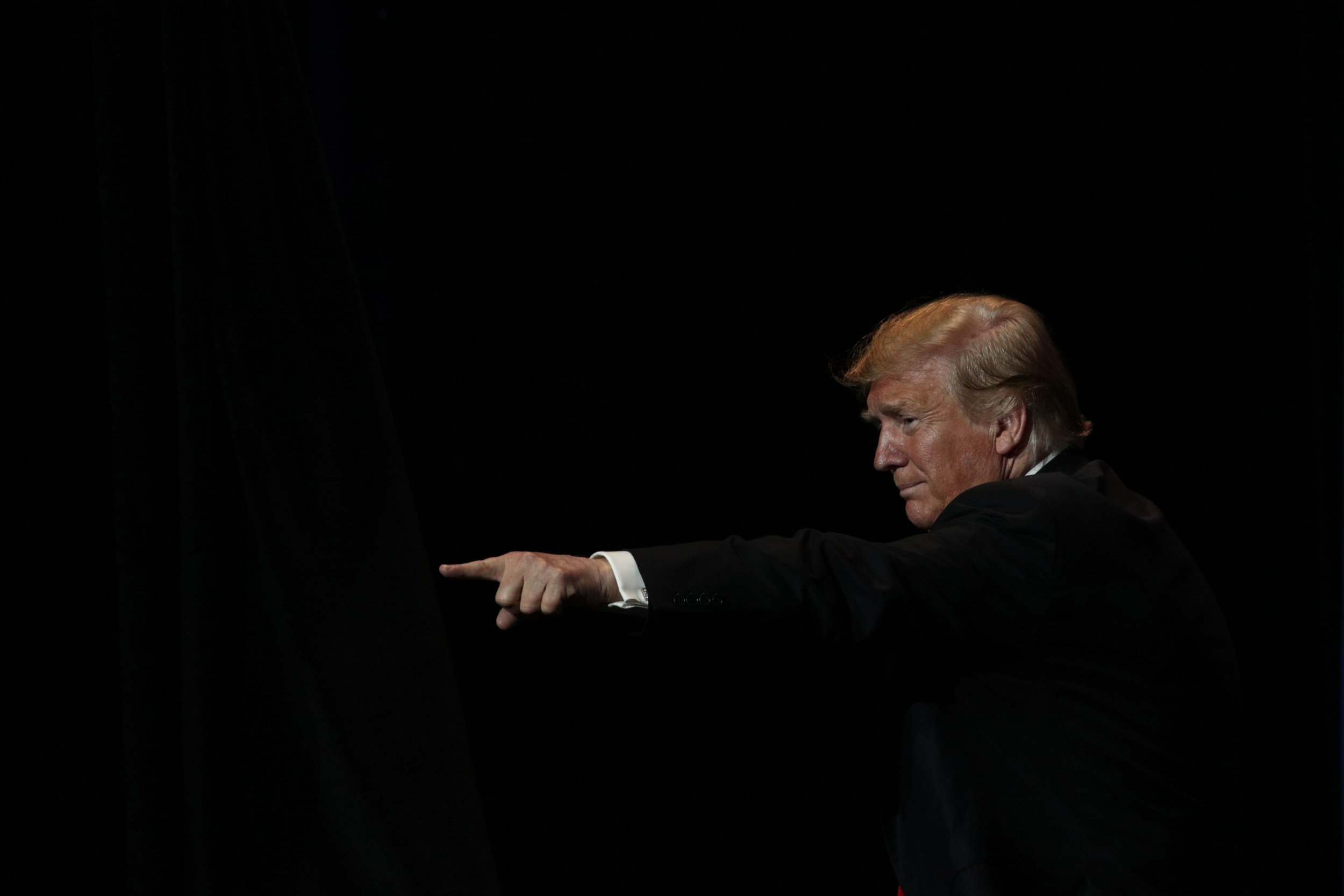
On Sunday, May 12, 2019, Trump sent a three-part tweet quoting Tom Fitton, president of the right-wing conservative foundation Judicial Watch, accusing the FBI and Democrats of "an illegal coup" to overthrow the president. Sadly, this is not the first time Trump has invoked the idea of a failed "coup" to characterize the legitimate and legal investigations being conducted into his abuses of power and potential criminal behavior.
At the annual meeting of the National Rifle Association (NRA) in Indianapolis on Friday, April 26, 2019, for instance, President Trump—commenting on the Mueller investigation—told conference goers, "They tried for a coup, didn't work out so well. And I didn't need a gun for that one, did I?" This was the second time in two days that Trump had invoked the language of a failed coup against his administration.
Trump's claim to have thwarted a coup is perhaps his most dangerous and undemocratic rhetoric to date, and that is really saying something given that President Trump consistently stokes racial resentment, encourages political violence against his enemies, calls for censorship of the news media, and undermines the rule of law.
To understand why Trump's rhetoric of a failed coup is so dangerous, let me say a few words about rhetoric and how it works. Contrary to popular perception, rhetoric is not empty. At its core, rhetoric carries and conveys both meanings and emotions.
The meaning of a message frames how we understand the world. It urges us to view and think about people and events in particular ways. The emotion of a message moves us at a bodily level. It urges us to feel about people and events in particular ways. Together, the meanings and emotions conveyed by rhetoric shape not only how we make sense of people and events, but also how we respond to them. All of this is by way of saying, that rhetoric has tangible, real-world, material consequences.
What, then, are the consequences of Trump's persistent lie about a failed coup? To answer this question, we need to examine three aspects of what Trump has said.
Consider, first, the meaning of the word "coup." A coup, by definition, is a violent, illegal, and sudden overthrow of a government by a political faction, military, or dictator. Nothing of this sort is happening in the U.S. So, in invoking this term, Trump is asking Americans to view the Mueller investigation and now congressional investigations as illegal attempts to violently overthrow the government. Trump urges citizens to perceive Mueller and anyone else who criticizes him not as reasonable people who disagree with him or who have uncovered wrongdoing, but as anti-government forces bent on forcibly imposing their will on us.
Consider, second, the emotional valence of the word "coup." Leaders who confront and defeat actual coup attempts often respond by executing those involved in the coup. In characterizing Mueller and Congress's lawful investigations as an attempted coup, Trump urges his followers to be outraged at his critics, to literally be filled with anger and rage at them. In stirring this rage, Trump implicitly sanctions violence and retribution against his critics.
If this seems like a stretch, consider, third, Trump's further comments about a so-called coup in his speech to the NRA, " I didn't need a gun for that one, did I?" The clear suggestion here is that while he did not need a gun to put down this particular coup, there may come a day when he and his followers may need guns to put down those who disagree with them. Is there anyone who believes that if the 2020 presidential election is close that Donald Trump will not contest the results or worse?
The rhetoric of a coup is not inert or innocent. Rather, it invokes meanings and emotions designed to justify violence against people who criticize the president. If we cannot criticize our leaders without fear of violence and retribution, then democracy truly has died.
This is the world Trump is rhetorically creating. It is not time to impeach him. It is time for him to resign in disgrace.
Brian L. Ott , a professor of communication studies and director of the TTU Press at Texas Tech University, is co-author, with Greg Dickinson, of The Twitter Presidency: Donald J. Trump and the Politics of White Rage.
The views expressed in this article are the author's own.
Uncommon Knowledge
Newsweek is committed to challenging conventional wisdom and finding connections in the search for common ground.
Newsweek is committed to challenging conventional wisdom and finding connections in the search for common ground.
About the writer
To read how Newsweek uses AI as a newsroom tool, Click here.








